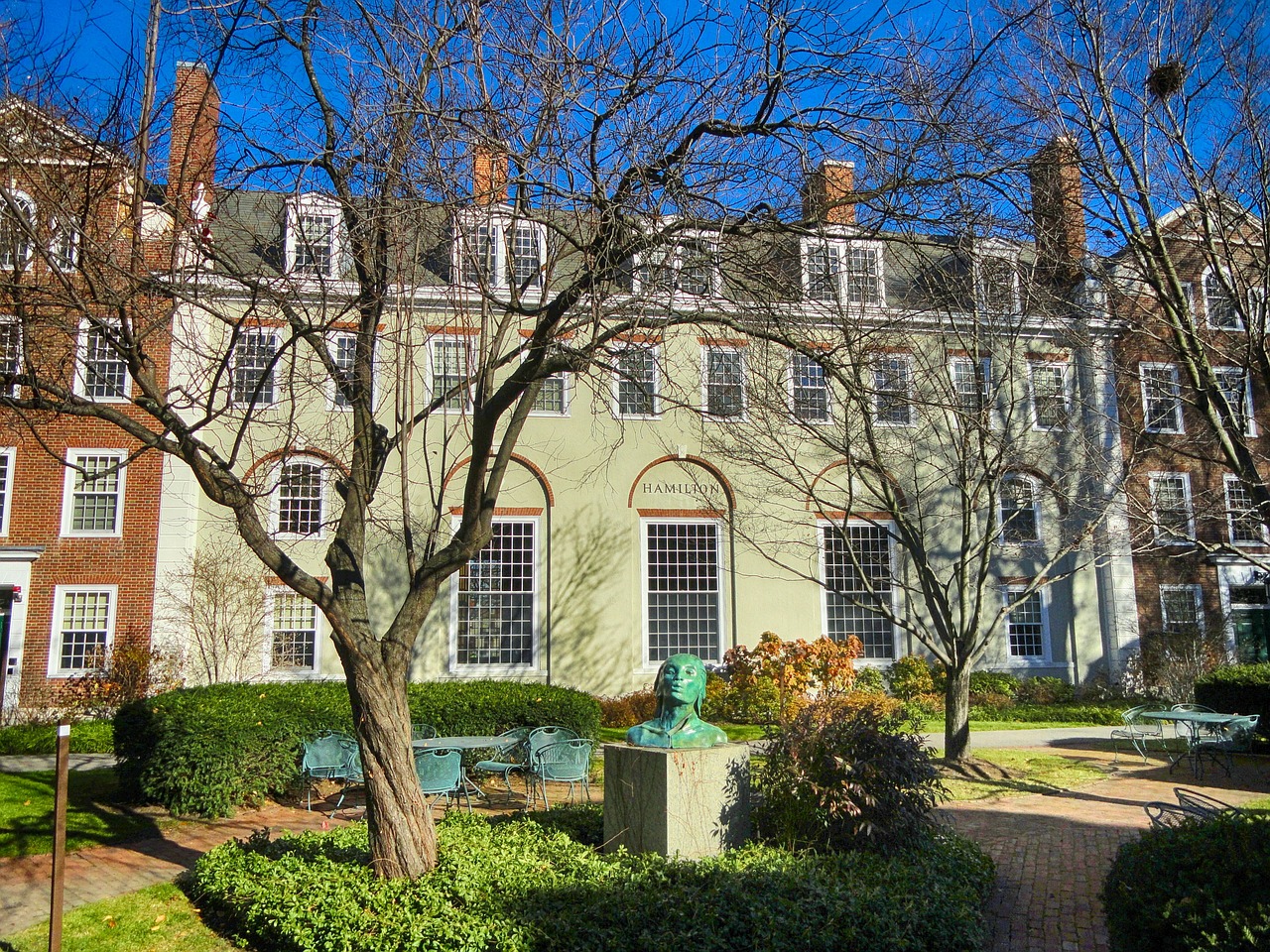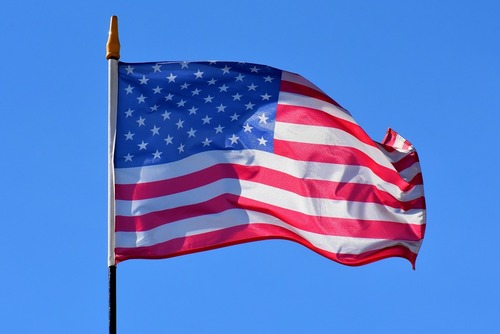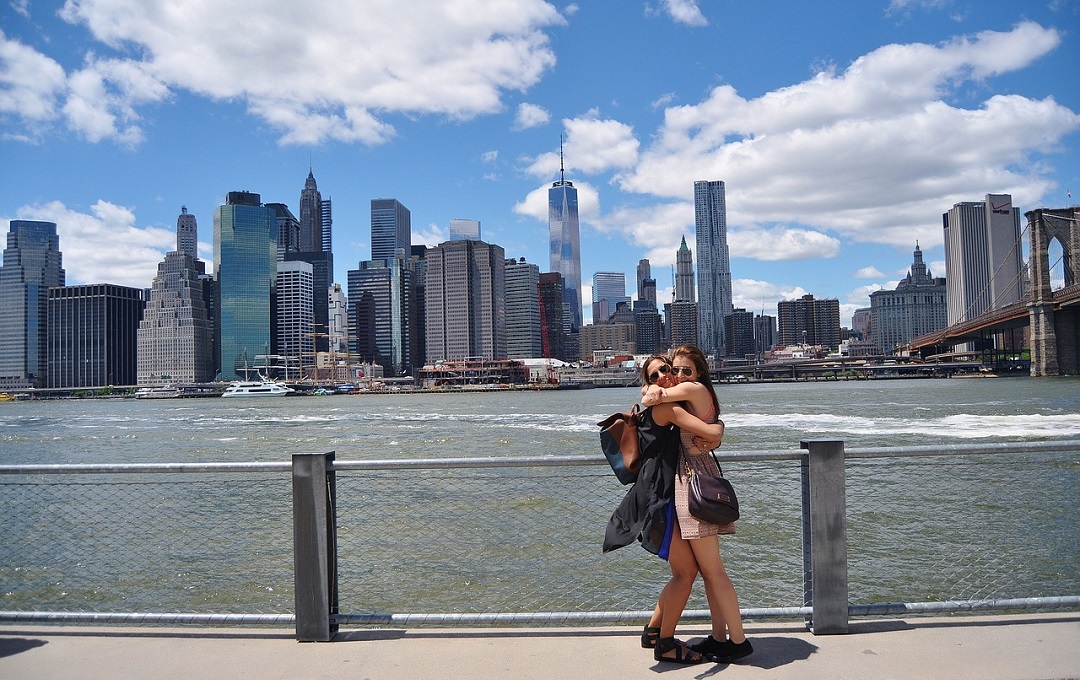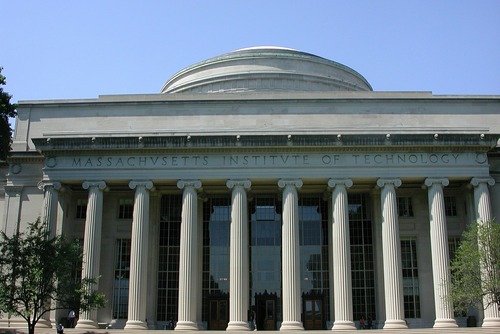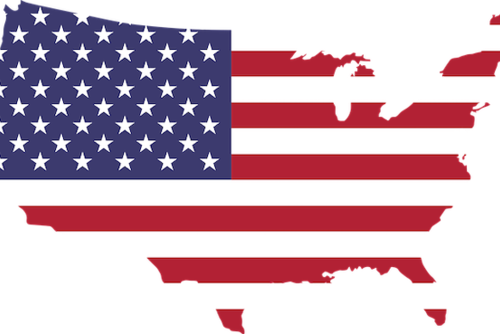You can find some of the most historical educational institutitons here with world famous colleges and universities including Harvard, Cornell, Penn, Princeton and Yale, just to name a few.
The United States’ tradition of higher education traces its roots to the first colleges which were founded with the intention of producing well educated men and women. These institutions of learning have become symbols of this country’s emphasis on the power of knowledge, wisdom, and innovation.
If you live in the USA and are considering options for higher education, or if you are keen to study abroad in the USA and wondering what are the most historic places to enroll our list will help.
Before we get started please be aware that "universities" as they are known around the world are called “colleges” by American students.
While getting into these colleges may be difficult for both native US citizens and also international participants, it is not impossible even if you are a non-native English speaker.
With research, preparation, determination entry acceptance can be achieved. You could get help online if you need assistance to improve your writing skills.
Top Tips for International Applicants
Here are some useful tips for international students applying to U.S. colleges:
- The application might seem intimidating and complicated at first, but it's fairly straightforward.
- Apply to lots of schools so you stand the best chance of getting accepted. If possible travel to the USA and visit places in person or check online reviews.
- Research scholarships and financial aid as the cost of studying in the US can be high.
- You will need to pass a TOEFL or IELTS test, to prove you proficiency in English. You could also combine experience and book an English course in the USA to improve your language skills.
- Some websites are available to help once you have began studying and if you are finding it a challenge, for example, you can request help online from websites which offer assistance to international students.
Now, lets get started and check out our list of the 15 oldest American colleges below.
15. Salem College (Winston-Salem, North Carolina)
Salem College is one of the lesser known places to study on our list. Originally known as Little Girls’ School, Salem College was founded in 1772 by the Moravian Community of Old Salem, which believed in equal education for both men and women. It is currently the US’s oldest educational institution that remains a women’s college, although men aged 23 or older are allowed to take continuing education programs.
14. College of Charleston (Charleston, South Carolina)
Founded in 1770, the College of Charleston is the oldest municipal college in the country. Three of its founders were signatories of the Declaration of Independence, namely Edward Rutledge, Thomas Heyward, and Arthur Middleton. Another three founders were also signatories of the US Constitution, namely Charles Pinckney, Charles Cotesworth Pinckney, and John Rutledge.
13. Dartmouth College (Hanover, New Hampshire)
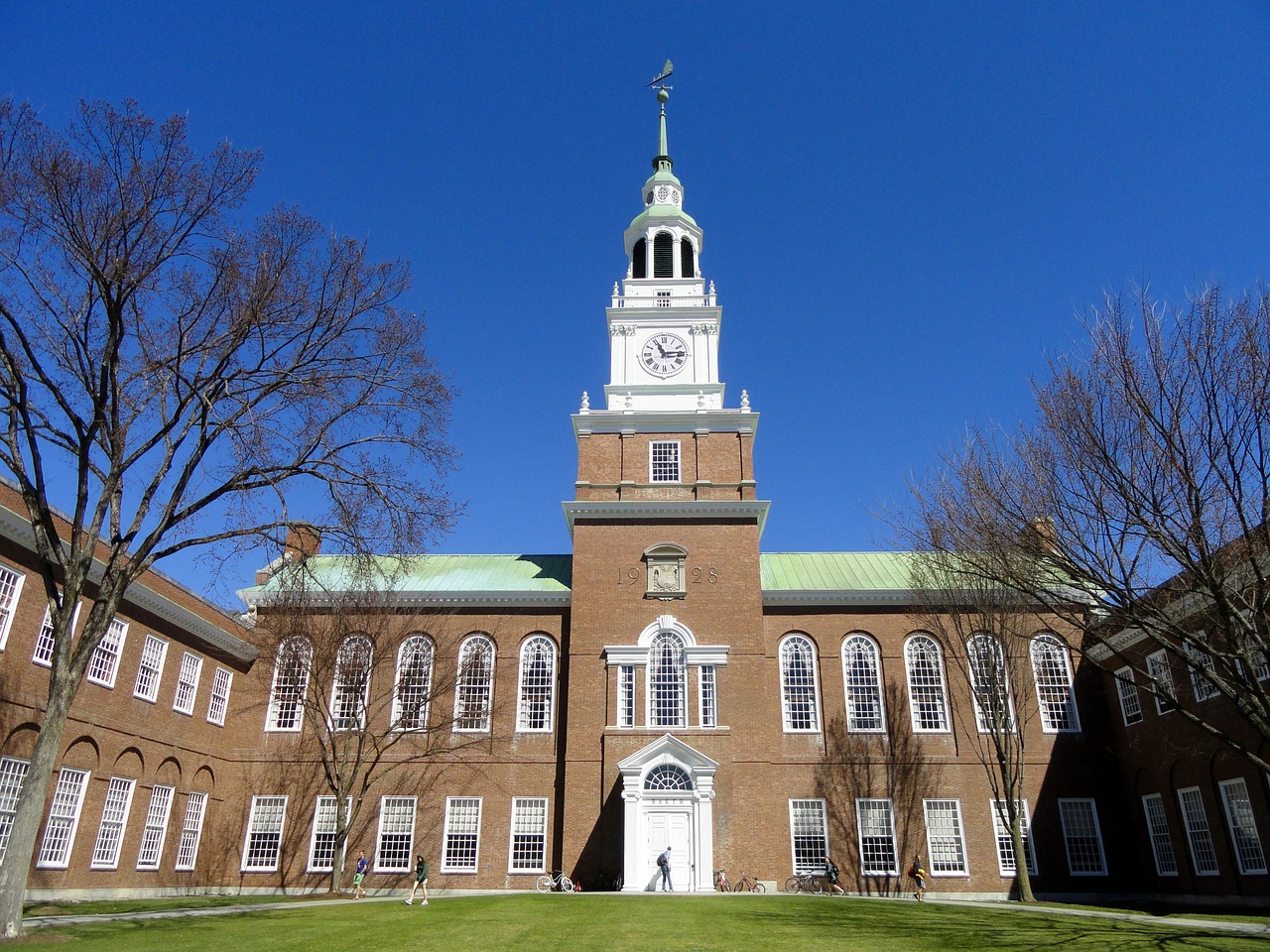
Founded in 1769 by Puritan minister Eleazar Wheelock, Dartmouth is a private research university originally intended as a school for providing Native Americans a Christian education. Today, Dartmouth is known for its academic excellence and is one of the eight Ivy League schools.
12. Rutgers University (New Jersey)
Founded in 1766 by leaders of the Dutch Reformed Church including Rev. Jacob Rutsen Hardenbergh and Rev. Theodorus Jacobus Frelinghuysen. Originally established as a school for training ministers, Rutgers is today a public research university and is New Jersey’s designated state university.
11. Brown University (Providence, Rhode Island)
Another Ivy League school, Brown is a private research university established in 1764 by Baptists including James Manning, the university’s first president. Renowned today for the quality of its education, Brown is also notable for being the first college in the US to accept students of any religious affiliation.
10. Columbia University (New York City, New York)
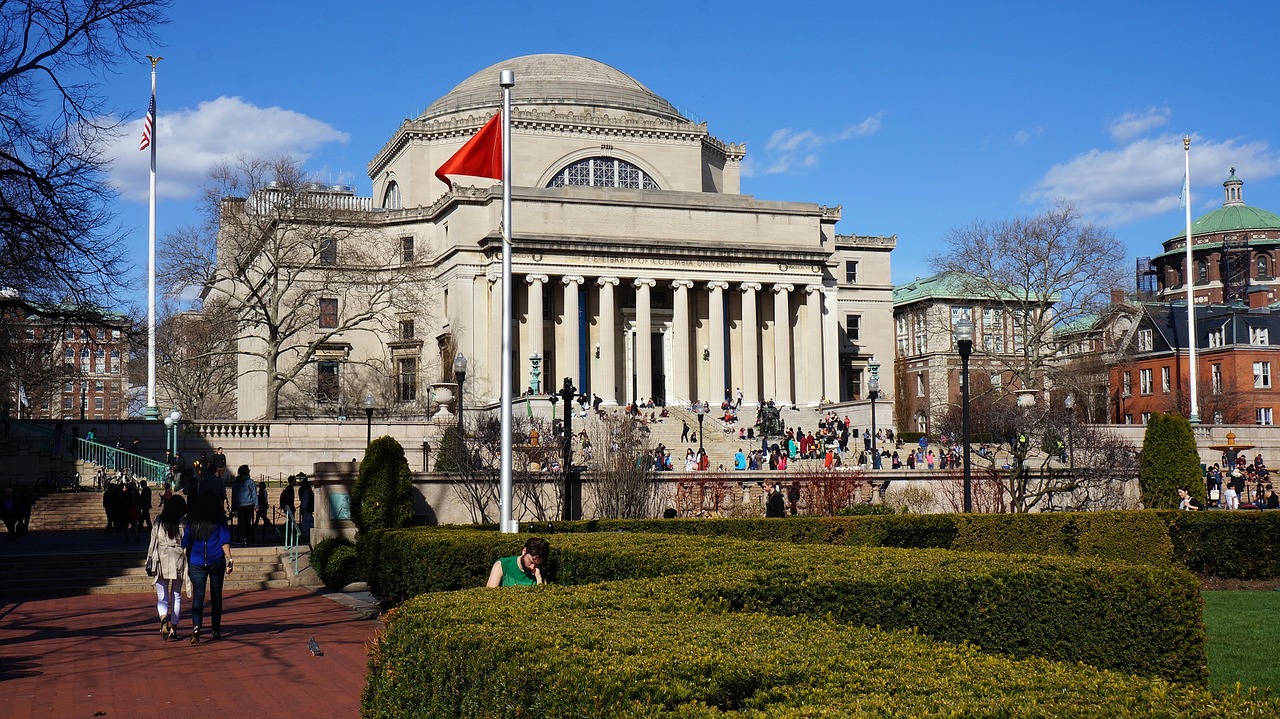
Also an Ivy League, Columbia is a private research university founded in 1754 through the efforts of prominent and influential New Yorkers. Notable for the outstanding quality of its education, Columbia is also noted for administering the Pulitzer Prize.
9. Washington and Lee University (Lexington, Virginia)
This private liberal arts university was founded in 1749 by Scots-Irish Presbyterian pioneers. The university was named after George Washington, who in 1796 endowed stock worth $20,000 to the school, and General Robert Lee, who served as its president from 1865-1870.
8. Princeton University (Princeton, New Jersey)

A private Ivy League research university, Princeton was established in 1746 by New Light Presbyterians and was originally intended as a school for training ministers. The university is notable for its very high academic standards and as the alma mater of numerous renowned scholars and politicians.
7. University of Delaware (Newark, Delaware)
A public research university, the University of Delaware was founded in 1743 by Francis Alison as a “free school,” which meant a school that seeks to liberate students through education. Today, the university offers over 130 undergraduate degrees, over 60 doctoral degrees, and over 140 master’s degree programs.
6. Moravian College (Bethlehem, Pennsylvania)
As one of the oldest colleges in the US, Moravian College was first known as the Bethlehem Female Seminary, which Countess Benigna von Zinzendorf established in 1742. Today, Moravian College is a private coeducational liberal arts college. The school is notable for being the first college in American history to educate women.
5. University of Pennsylvania (Philadelphia, Pennsylvania)
Founded in 1740 by beloved Founding Father Benjamin Franklin, this private research university is a member of the Ivy League and is well-known for its academic excellence. As one of the oldest universities in the US, Penn is the first institution to offer undergraduate and postgraduate studies as well as the first to open a medical school.
4. Yale University (New Haven, Connecticut)
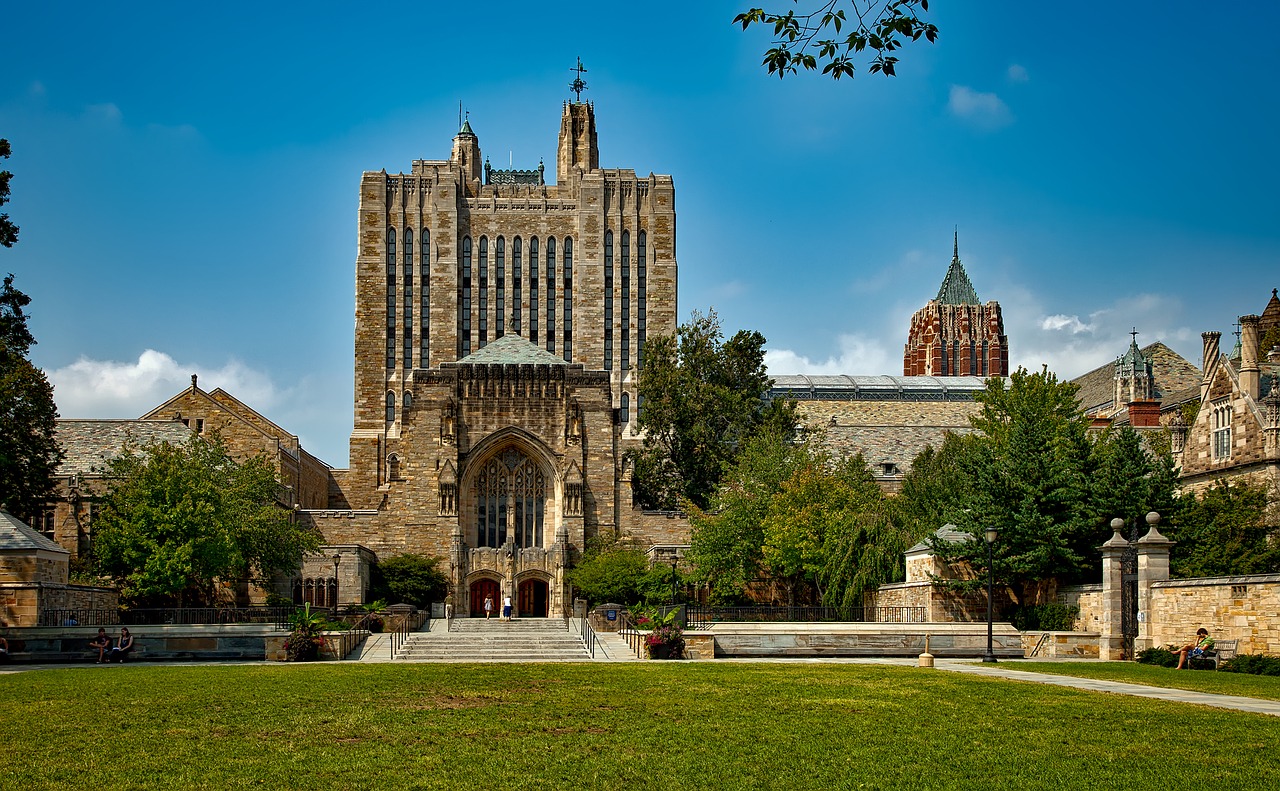
Another Ivy League school, Yale is a private research university founded in 1701 by a group of Congregational ministers. The school was named after Elihu Yale, who in 1718 made a substantial donation. Like other Ivy League schools, Yale maintains very high academic standards and world rankings as a leading center for higher learning.
3. St. John’s College (Annapolis, Maryland)
The first “free school” in Maryland, this private liberal arts college was founded in 1696. It was originally known as King William’s School, which served as Maryland Colony’s grammar school. Today, St. John’s is considered as one of the leading liberal arts college in the country.
2. College of William and Mary (Williamsburg, Virginia)
Founded by King William III and Queen Mary II in 1693, this public research university is the alma mater of a number of American presidents, members of the Continental Congress, and signatories of the Declaration of Independence. As one of America’s oldest colleges, this school is widely considered as a “Public Ivy,” a term that refers to a public institution that offers education on a par with Ivy League colleges.
1. Harvard University (Cambridge, Massachusetts)
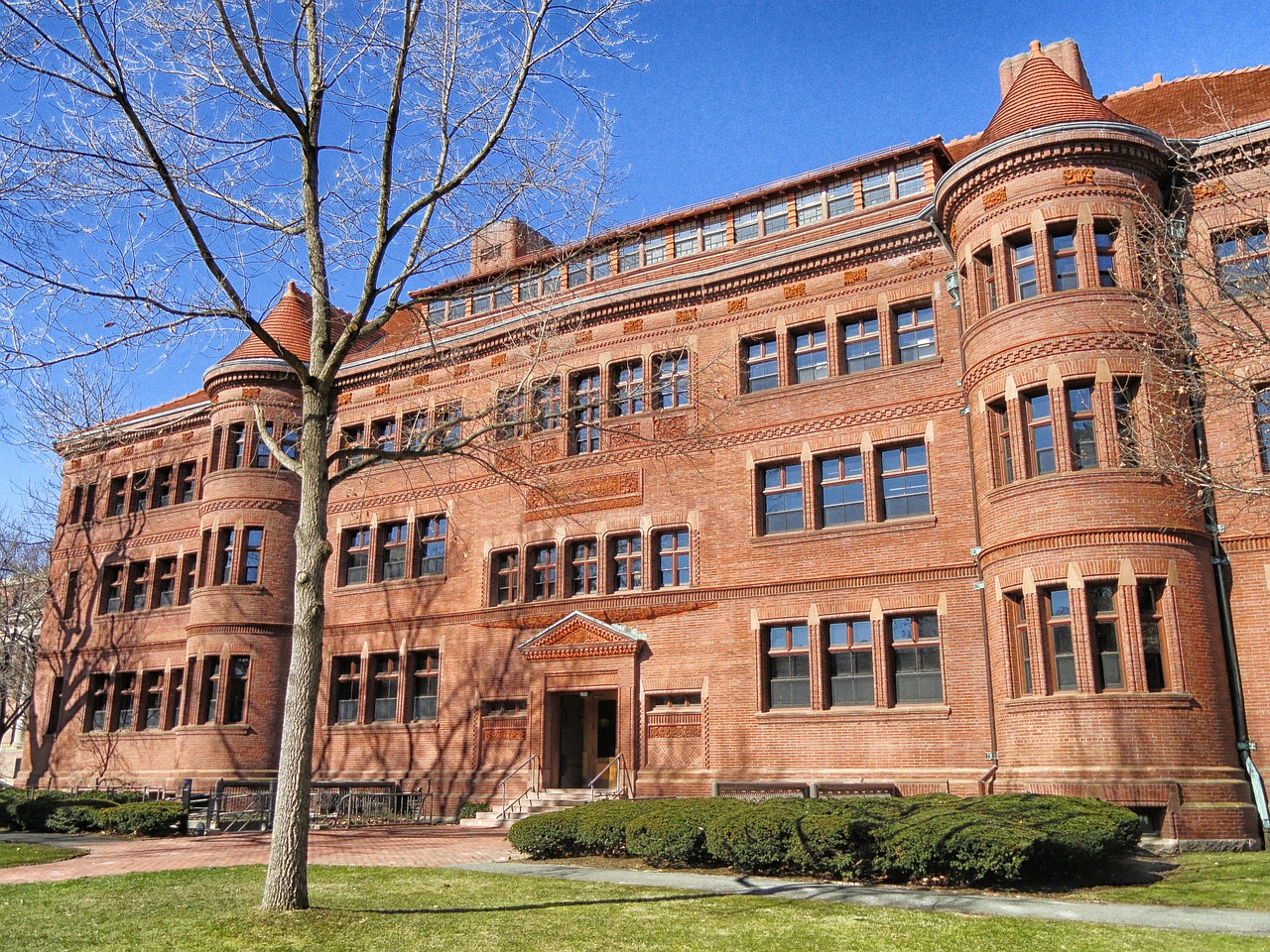
Founded in 1636 by the Great and General Court of Massachusetts Bay Colony, Harvard is the oldest institute of higher learning in the the United States.
As a private Ivy League research university, Harvard is the alma mater of not only American presidents but also foreign leaders, renowned scholars, and celebrated artists among others.
Harvard is considered as one of the top schools in the United States and is usually ranked high when it comes to subjects like life sciences, medicine, and liberal studies.
As the oldest colleges in the USA, these schools are reminders that this country owes much to the great men and women who had dedicated and continue to dedicate their lives to the pursuit of learning.
If you are keen to study abroad and are keen on the idea of going to the USA to expand your learning then you really can't go wrong with any of the places on our list.
From Traditional Colleges And Universities To Online Classes
These days, many people are looking for the right online college course. It’s no surprise as the economy continues to struggle, everybody is looking for something to cope up with their educational needs. In fact, there’s a lot more involved than just going to an online college class.
That being said, here are some advantages when attending online classes:
- The biggest reason why online courses are so popular is that they allow you to attend class when it fits your schedule. You don't have to take the time off from work or family obligations just because you want to learn a new skill.
- You can take any course you want, such as taking an online MBA with no GMAT required. When you're looking for an online course, make sure that you find one that fits what you want to learn.
- You don’t have to travel long distances or deal with the commute in and out of school.
- You also don't have to deal with the hassle and stress of trying to fit time in during the day for a class that you don't even really enjoy. All you have to do is decide what subject to study and then, when you have the time, you can take the classes.
- One good reason to consider taking an online course is that it can save you quite a bit of money. There are online colleges that’ll offer a full range of classes for you to choose from for a fraction of the price that you'd pay in a regular school. This might be a bit easier compared to going to a regular school because you're usually paying tuition fees and rent.
- It’s especially useful if you need the flexibility to get into and out of a full-time job. Since you're not sitting in class all day waiting for a teacher to teach you, you can focus on things that you're interested in without worrying about when the next lesson is coming around. There's also less pressure on you to show up and get ready for class because you can do most of your research through the internet.
Now go get that American dream or check out more options in North America on our guide to studying abroad in Canada.

